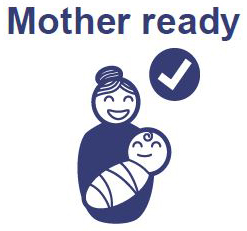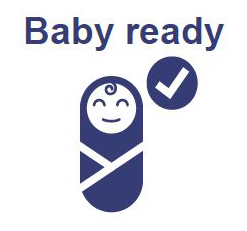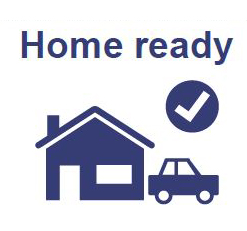Going home
Childbirth is a natural process and one which mothers, family and friends share together. Planning to go home as soon as possible means that the experience of the new baby is shared in the comfort of your own home. Once you and your baby have been checked, the doctor or midwife will inform you of when you may go home. If you and your baby are well enough, you can expect to go home from 4 hours after an uncomplicated vaginal birth, and between 24 and 72 hours after a caesarean birth. At the Family Birth Centre you can expect to go home at around 4 hours after birth unless you or your baby need to be transferred to the main hospital for additional care.
This service offers postnatal care for you and your baby in your home environment. For those outside the hospital boundaries, follow up care can be received from your local hospital, Child Health Nurse and / or GP. Other support services are available depending on individual circumstances and these will be discussed with your midwife if required.
You will be ready to go home when these things are done:

- Health check
- Eating and drinking
- Passing urine
- Any pain managed
- Moving / walking
- Understanding of any ongoing healthcare needs
- Social, cultural and emotional needs have been considered
- Awareness of your baby’s physical, social and emotional needs
- Received referrals/instructions for follow up treatment and checks.

- Health check
- Have a feeding plan
- Vitamin K and Hepatitis B considered
- Birth registration paperwork and purple Health Record given and explained
- Received referrals / instructions for follow up treatment and checks.

- Discharge medication arranged
- Transport and baby car seat arranged
- Understanding and awareness of available support services
- Discharge paperwork completed
- Social and home environment have been considered
- Safe sleeping environment for baby discussed.

